In this issue, Index publishes excerpts of banned plays in Indonesia and highlights ongoing censorship in other Asian countries.
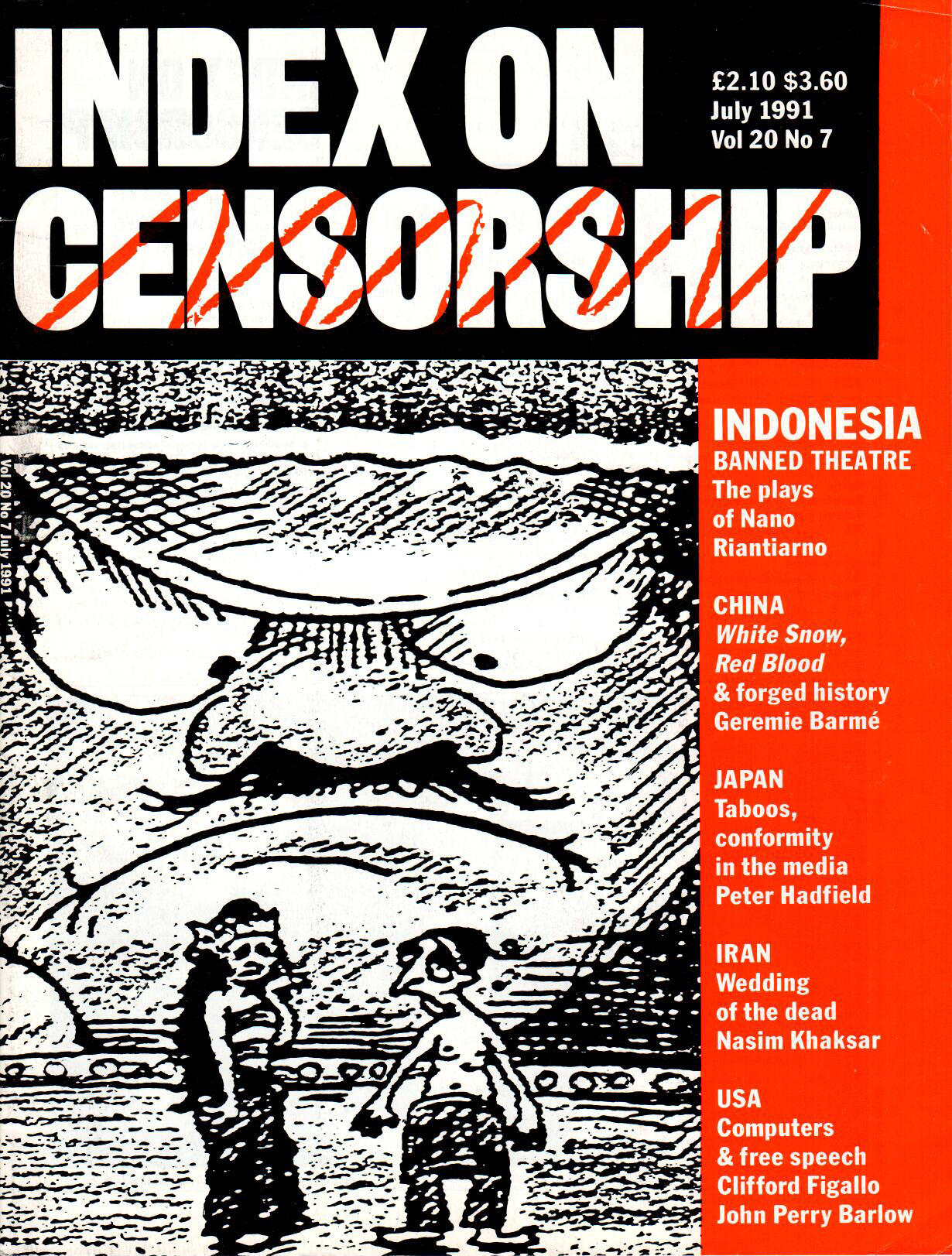

In this issue, Index publishes excerpts of banned plays in Indonesia and highlights ongoing censorship in other Asian countries.
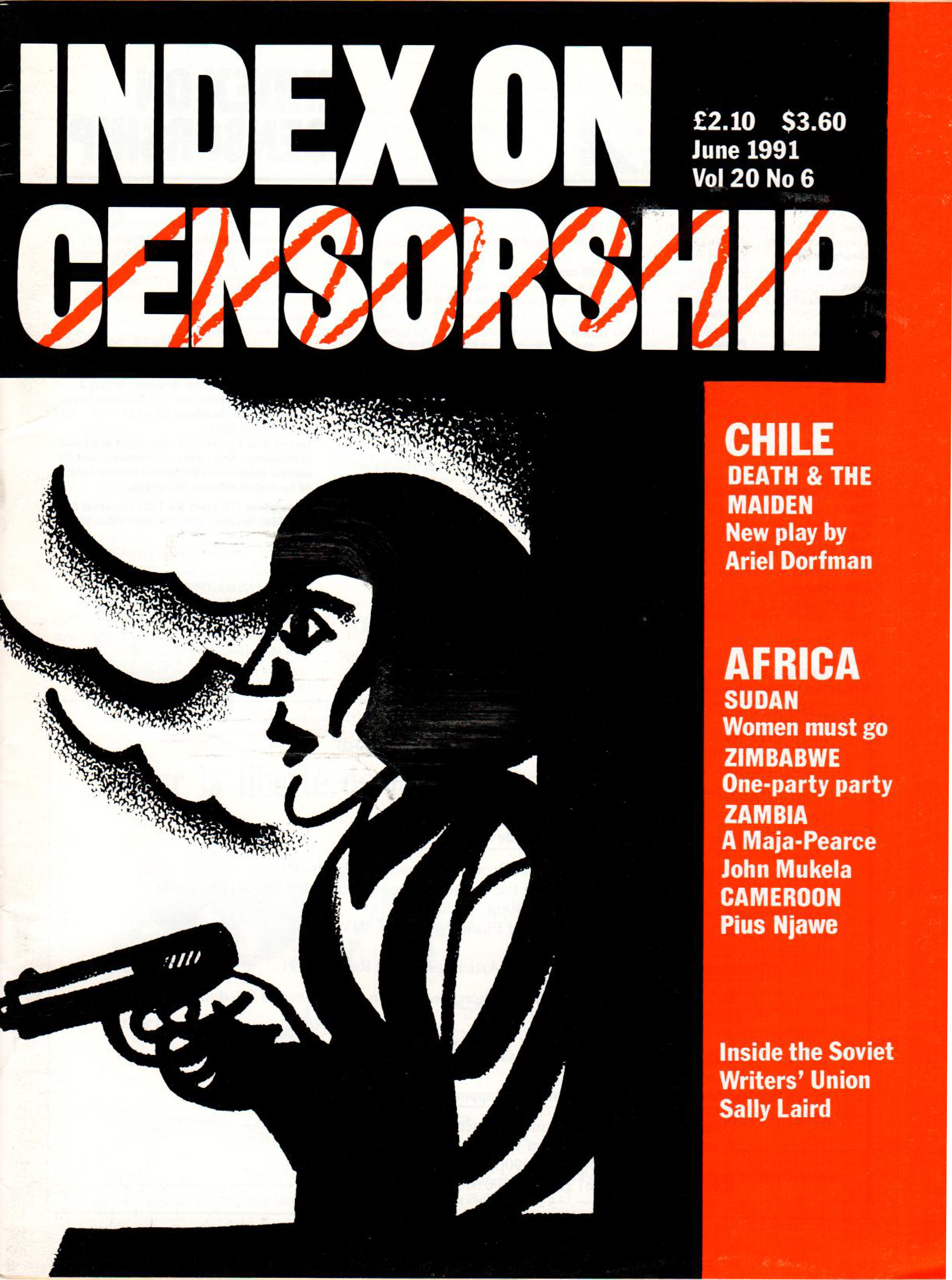
In this issue, Index highlights Chilean writer Ariel Dorfman and his play.

[vc_row][vc_column][vc_column_text] By Ronald Dworkin The Gulf War is already a mythic event. President Bush said that it washed the stain of Vietnam from America's shield, and America and the other nations that participated, including Britain, are...

In this issue, Index looks at the media management in the Gulf War.
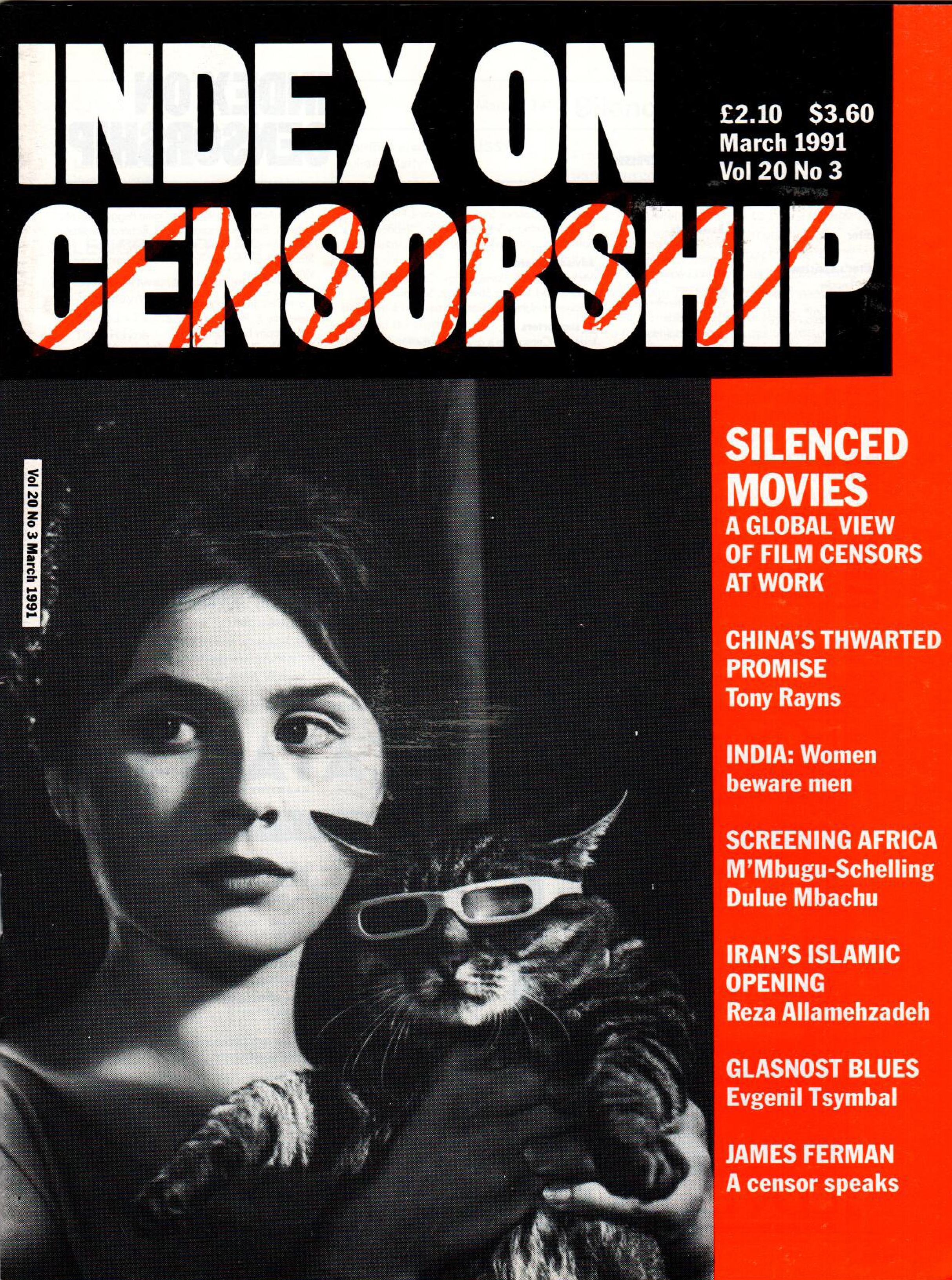
In this issue, Index publishes a global view of film censors at work.
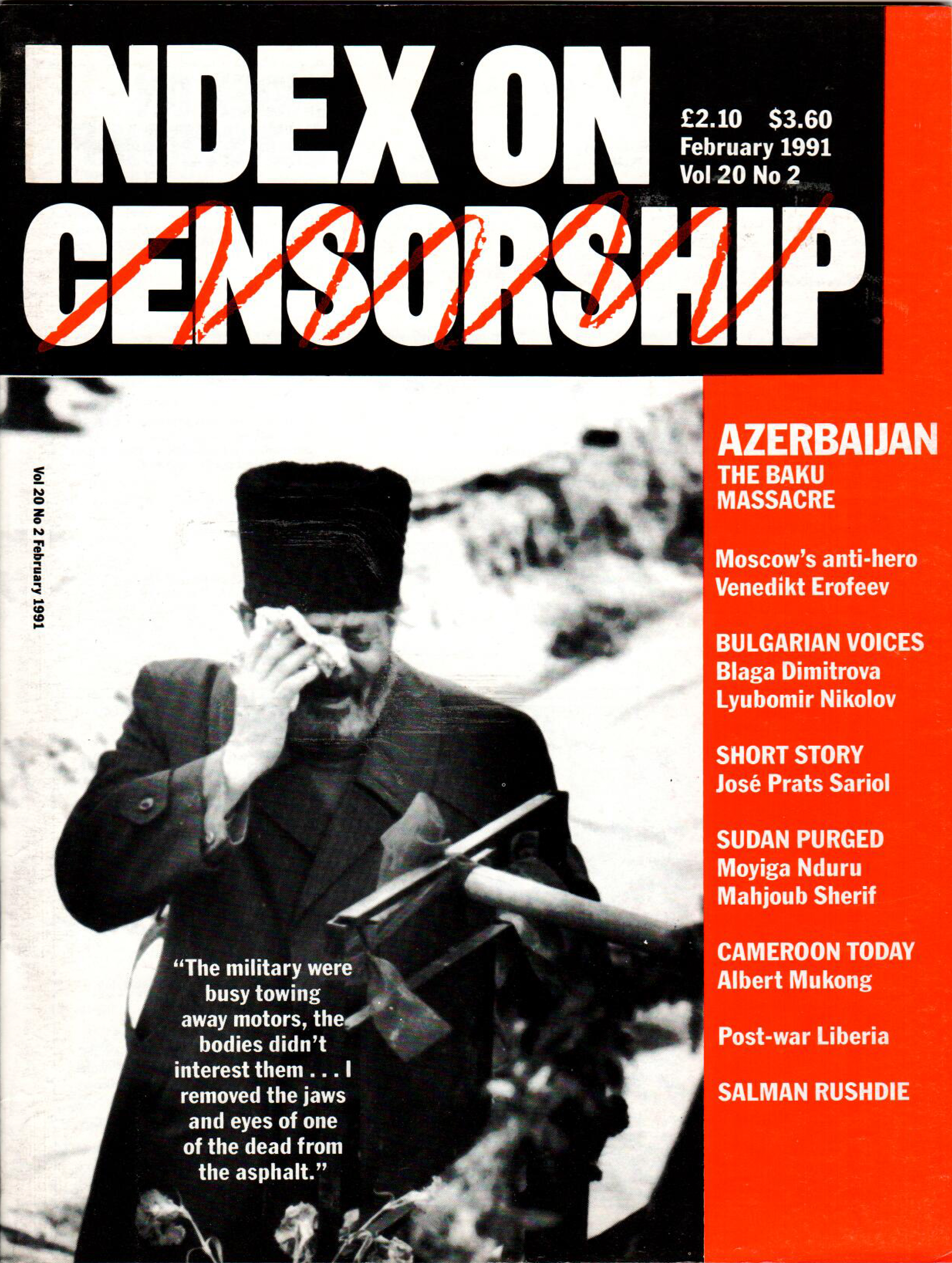
In this issue, Index publishes previously unseen photographs from the Baku Massacre and a first-hand account of what happened on 19 January 1990.
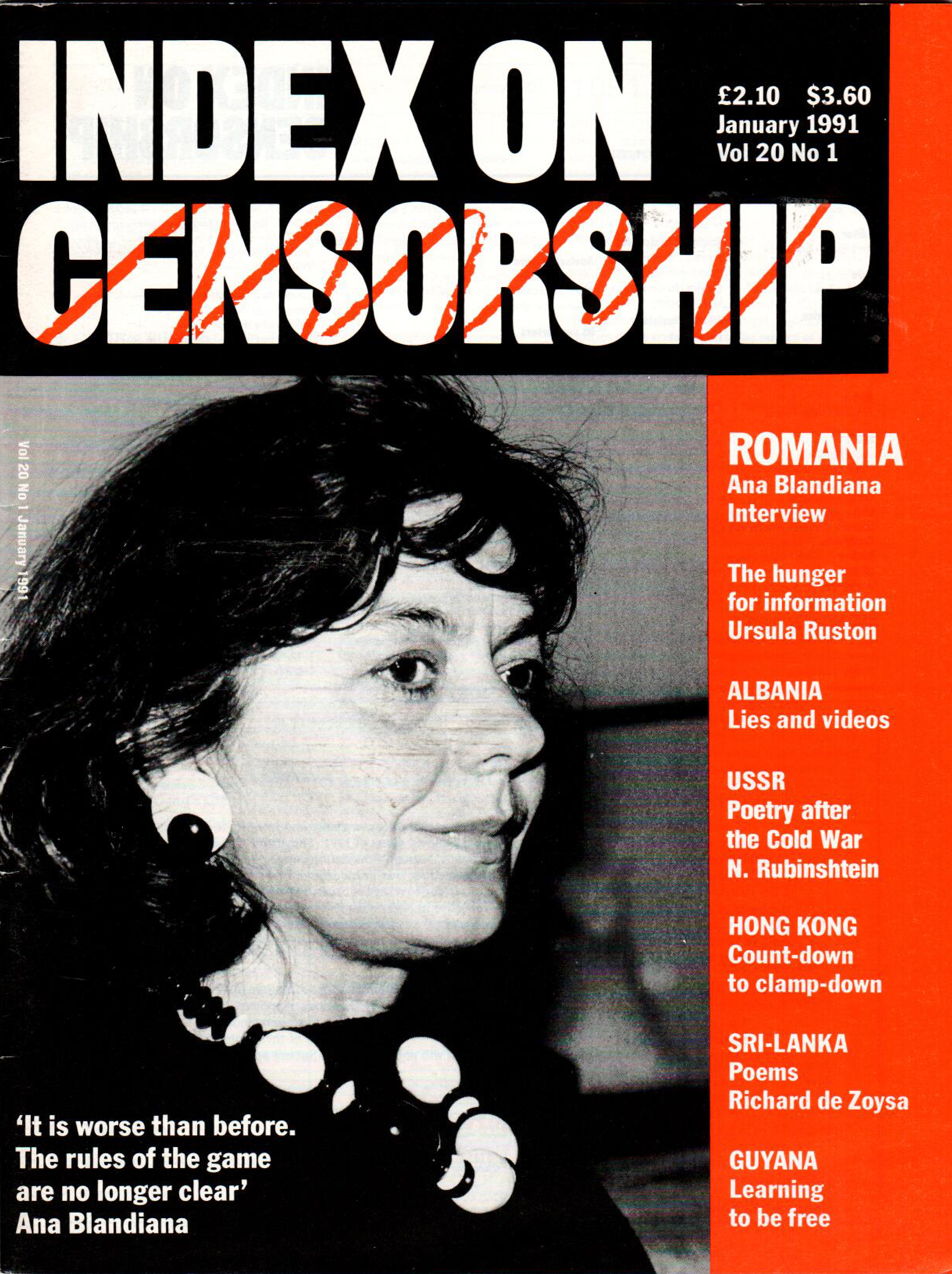
In this issue, Index publishes material describing changes that have taken place in Turkey over the last two years.

In this issue, Index on Censorship magazine explores the growing terror against journalists in Mexico.
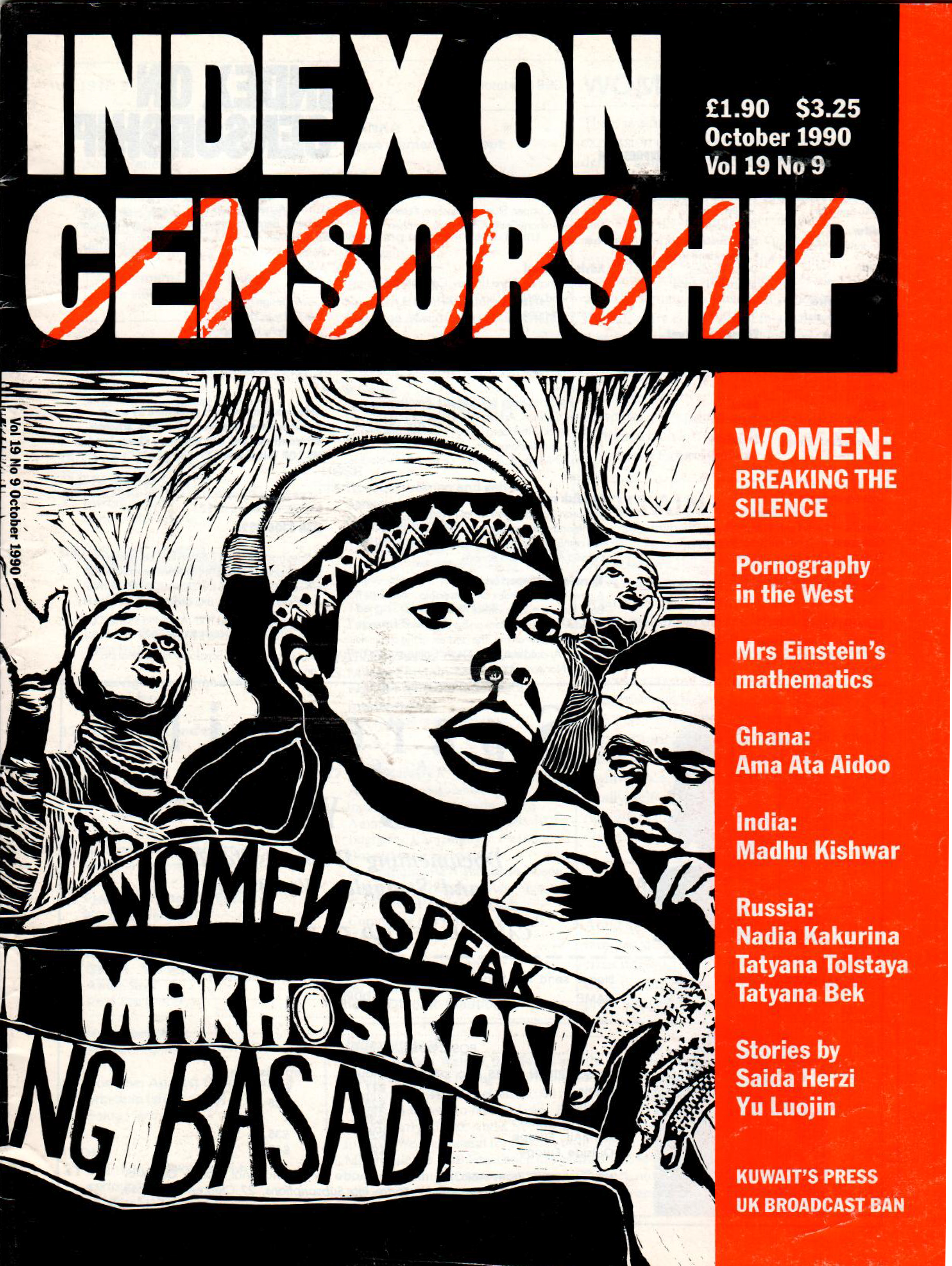
In this issue, Index on Censorship magazine explores women’s views on crucial censorship issues that affect them all over the world.
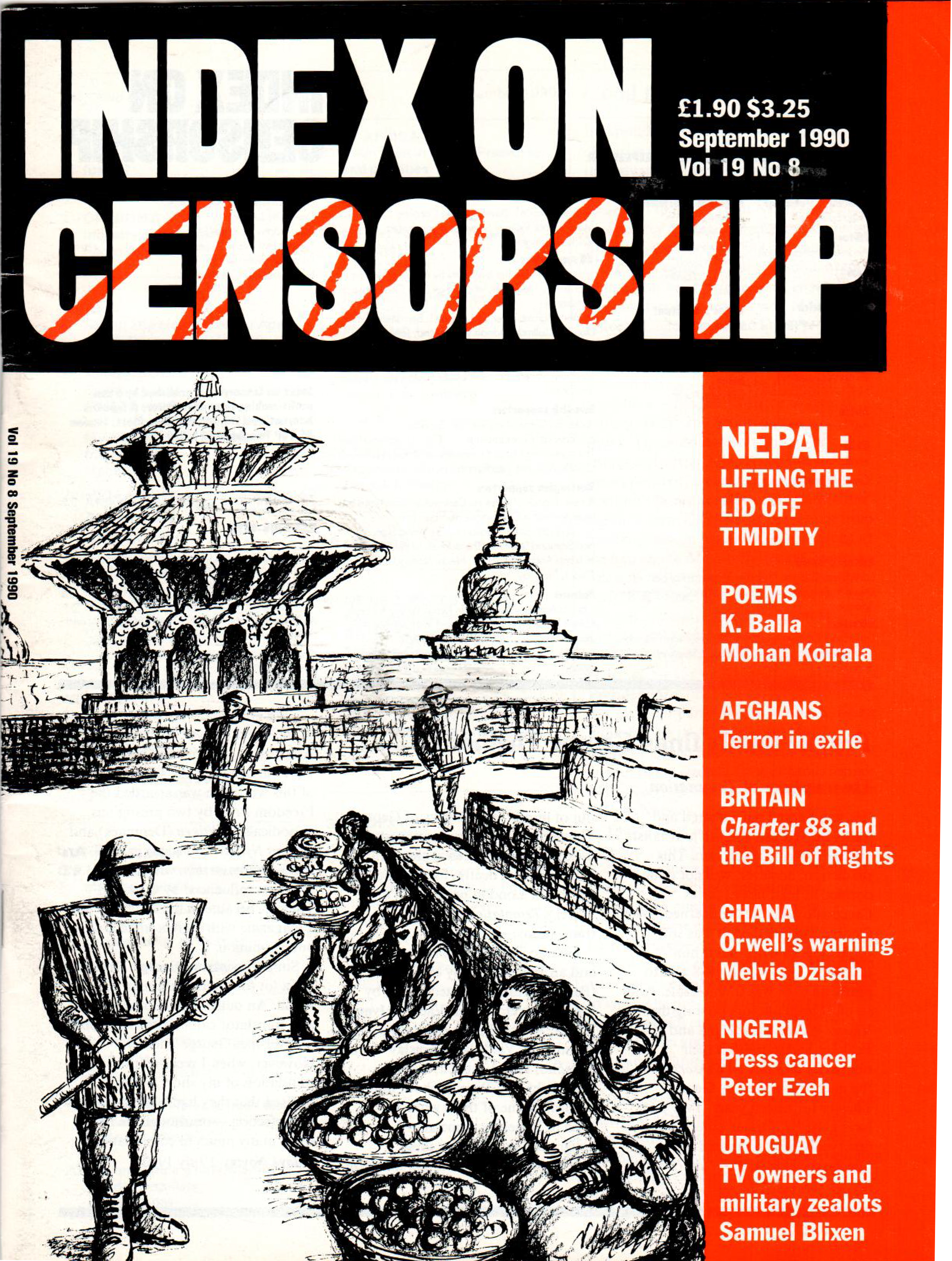
In this issue, Index on Censorship magazine explores the possibility for new political freedoms in Nepal.
A quarterly journal set up in 1972, Index on Censorship magazine has published oppressed writers and refused to be silenced across hundreds of issues.
The brainchild of the poet Stephen Spender, and translator Michael Scammell, the magazine’s very first issue included a never-before-published poem, written while serving a sentence in a labour camp, by the Soviet dissident Aleksandr Solzhenitsyn, who went on to win a Nobel prize later that year.
The magazine continued to be a thorn in the side of Soviet censors, but its scope was far wider. From the beginning, Index declared its mission to stand up for free expression as a fundamental human right for people everywhere – it was particularly vocal in its coverage of the oppressive military regimes of southern Europe and Latin America but was also clear that freedom of expression was not only a problem in faraway dictatorships. The winter 1979 issue, for example, reported on a controversy in the United States in which the Public Broadcasting Service had heavily edited a documentary about racism in Britain and then gone to court attempting to prevent screenings of the original version. Learn more.